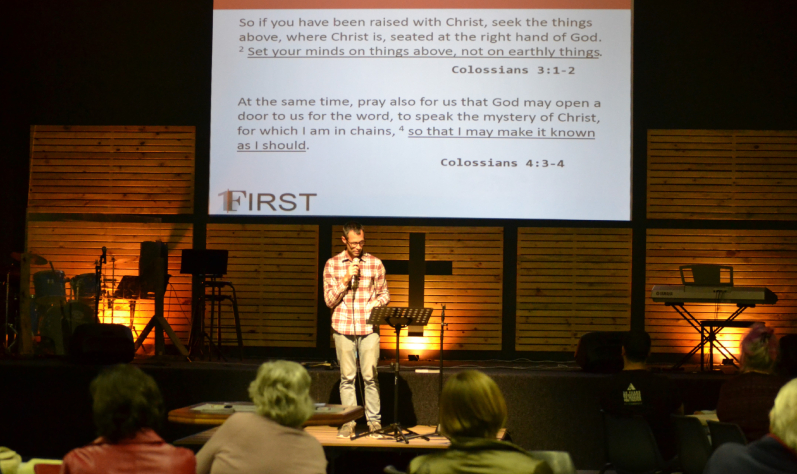Andre Kruger, Emmanuel Church
How have you needed to adapt to continue ministering during the lockdown?
Traditionally, PE is very relational place. You don’t need to make an appointment before popping in to visit someone. Gospel-centred life is shared across the kitchen table. It has been a tremendous challenge to work out how we are going to continue “doing community” in a community where people are reached in their homes, while being mindful of the risks. And, people are tired of distancing, so it has also been a challenge to encourage people to continue to protect themselves. We recently held a webinar with a medical doctor on our council who could answer questions, expel myths and explain that the pandemic is still upon us – it has not gone away. We have taken a double-barrelled approach – trying to teach the reality of COVID-19 but also continuing to work from whence we come, not wanting to change our relational way of being in community – always working on it of course, but keeping some of the positives.
As a church in Port Elizabeth, the pandemic has highlighted a number of different aspects of ministry. It has pushed us as a church to ask, “How do we make good use of our premises while we cannot gather as a whole church? How can we still meet and disciple people in a time when it is not wise to be in the same room as them? Our church was fortunate to be able to go the ‘Church One Line’ route but, in Emmanuel Church’s context, about half of our community does not have sufficient Internet access or data, so we have had to look at other means of getting Sunday services out there.
We are now seeing more and more churches re-opening. Once gatherings of up to 50 people were permitted, we re-started our church services, particularly for people without sufficient Internet access and we encouraged those who have sufficient Internet access to continue with Church on Line. However, certainly pastorally, as we meet with folk we are seeing the toll that extended distancing has had on people, so we have upped our number of church services, opening them to anyone who would like to attend and now have a few different services running.
How has the pandemic brought gospel opportunities?
The Eastern Cape does not have a shortage of churches or organisations who preach the prosperity gospel. There is a lot of “gospel-plus” ministry going on that depends on meetings as people look for ‘healing’ and ‘sanctification’. The moment local churches were informed that they cannot meet, a number of churches announced that they were closing their doors for the time being – showing their theology of place. And, as they have been closed people have looked at other churches and this has offered a great opportunity for us to present the gospel of Christ – come as you are.
Has the pandemic brought you any surprises?
People’s responses have been my biggest surprise, our church comes from a place of hurt and the church community was rattled, but the coronavirus pandemic has brought people together. Our church has been great, pastorally speaking. As we now lead with a phone call it’s been great to hear that I am not the first person calling. Members of our congregation have been keeping in contact with each other in a dynamic way. And, we have a massive food ministry that has grown tremendously, supporting needy people in informal settlements right on our doorstep. What has also amazed me, in a negative sense, is the dichotomy in Port Elizabeth. For example, a lot of people have not sought to support their domestic workers, depriving them of a means of support, and many of the more disadvantaged schools have been badly affected. Realistically speaking, in our part of Port Elizabeth people’s needs are escalating and there is more and more gospel opportunity.
The pandemic is causing us to think differently as we face the future and plan planting a church down the line. It is time to think out of the box and to be sharper as to how we do ministry in the future.


